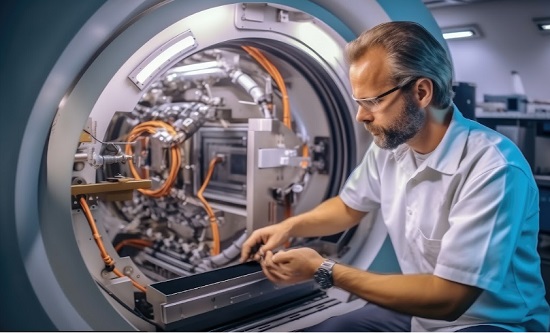Medical devices are key to diagnosing and easing a patient’s symptoms and conditions. Given their crucial role in delivering high-quality healthcare service, strict manufacturing and testing standards are implemented to ensure their safety and accuracy.
However, despite the stringent standards and manufacturer’s compliance, an apparatus may fail to work as intended or pose certain hazards to a patient.
In cases where you or a family member may have incurred a loss or an injury due to a specific medical instrument, it pays to consult with a personal injury attorney Sacramento or reputable law firms in your location. Additionally, you must gather essential information for an easier journey toward seeking legal action and compensation.
Here are some steps to help you get started.
1. Understand What A Medical Device Is
According to the World Health Organization, about two million types of medical instruments are used in hospitals and other healthcare settings worldwide. Meanwhile, the United States Food and Drug Administration database classifies and regulates over 6,000 medical devices.
By loose definition, a medical device is any item used alone or with other items for medical purposes. It can be a machine, an apparatus, an appliance, an implant, or an intangible item like software, per the World Health Organization. Specific examples include defibrillators, blood pressure monitors, lenses, stents, ventilators, etc.
2. Faulty Medical Devices And Product Liability Claims
A faulty medical device is covered by product liability laws. These state-specific regulations, including the claims and damages, differ from jurisdiction to jurisdiction.
The statutes, however, are anchored on the following core principles:
- Liability
- Negligence
- Breach of warranty
- The Uniform Commercial Code
Gathering and documenting evidence is key to building a robust case, and seeking medical attention is paramount, especially in determining the cause and extent of your injuries and losses. Additionally, you need the guidance of a seasoned product liability claims lawyer with expertise in defective medical device litigations.
3. Find Out What Makes A Defective Medical Device
A recent investigation and test has discovered that certain high-risk medical devices have a 58% failure rate, twice the rate noted in a previous study.
A medical device may become faulty for various reasons. Attorneys typically identify any of these legal frameworks to substantiate a product liability lawsuit or claim:
- Design Defect
The medical device doesn’t necessarily have to have physical flaws to establish a design defect. This allegation is based on the premise that the manufacturer committed negligence in designing the product for utmost safety.
You and your lawyer must prove that there’s a better way to design the device to make it safer while staying functional and effective. In such instances, the manufacturer may be liable if they were aware of the issue but refused to take action.
- Manufacturing Defect
A manufacturing defect claim asserts that while the medical item was properly designed, there was negligence at some stage of the production process. This may be utilizing inferior quality parts, substandard fabrication practices and assembly, or lack of quality assurance measures, leading to missing parts and other associated issues.
It may also involve actions committed by any party involved in production and distribution, such as improper handling and storage, resulting in quality deterioration.
- Marketing Defect
Besides the manufacturer, a negligent party could be a physician, a medical sales representative, an independent testing laboratory, or a marketing firm. Such is the case when the allegation indicates that the person was harmed because of the accused party’s misleading advice on the product’s medical applications and inadequate instructions on proper use.
To sum up, the injured party must prove the product defect allegation by asserting the following:
- The defendant knew the risks and dangers associated with the medical device.
- They failed to warn or instruct users on how to use the product safely.
- The failure to issue a warning or instruction caused the claimant’s loss of injury.
4. Learn The Essential Elements In Product Liability Claims
A good personal injury lawyer must be able to establish that the device was dangerous and that the individuals who produced and handled them were negligent, therefore causing harm to the user. More specifically, the injured party must assert the following:
- The product was defective.
- The person suffered an injury or loss.
- Such defect caused harm to the complainant or worsened their symptoms or condition.
Above all else, it should be proven that the faulty medical device was used according to the instructions administered by manufacturers and other professionals.
Limitations
The statutes of limitation for defective medical devices vary from state to state. Depending on the type of defect, a victim may have up to 10 years from the date the product was purchased or first used to file a product liability claim. For instance, if the device was used on October 1, 2023, the claim should have been filed before October 1, 2033.
5. Call A Reputable And Experienced Personal Injury Lawyer
Laws are generally challenging to navigate, especially without the help of an expert legal professional. Choosing an experienced personal injury lawyer is key to getting the best possible outcomes in a defective medical device claim.
Your attorney is your best ally in evaluating your situation, gathering evidence, establishing the elements of causation, identifying the best strategy, and pinpointing the potential damages you’re legally entitled to claim, including economic and non-economic losses.
Concluding Thoughts
The processes involved in a product liability lawsuit are complex and full of contention. And it doesn’t help that you’re going up against medical manufacturing companies and defendants with access to the best legal assistance.
Seeking legal advice and medical assistance are crucial in building your claim, even outside litigation. Besides helping you achieve the best possible legal outcomes, working with personal injury lawyers can help you move forward. They can help you with insurance claims or negotiations should the defendant propose an out-of-court settlement.

















